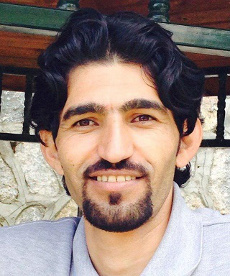Iran Drug Execution Reform: A Slow Stumble Toward Normalcy
On Sunday, March 12, Hassan Nowruzi, spokesman of the Majles’ Judicial Commission, broke news that the body had approved a legal addendum to Iran’s Anti-Narcotics Law. Widely reported as a major piece of criminal law reform intended to combat Iran’s alarming rate of executions for drug offenders, the measure is nonetheless marked by serious shortcomings which demand the attention of the human rights community. To capitalize on this slow and limited progress, advocates must be clear about these failures as the legislative process moves forward:
 1. The bill has yet to become law, and continues to face procedural hurdles while the lives of thousands hang in the balance. Even with the approval of the Majles Judicial Commission, the measure needs the approval of two further bodies before becoming law: the general session of the Majles (which has heretofore only approved the urgency of the addendum and not, significantly, the language itself) and the Guardian Council (an unelected 12-member body empowered to veto any legislation it deems either unconstitutional or un-Islamic.) Procedural delays have already exacted a terrible cost: in the time since the bill was first referred to the Judicial Commission in November 2016, ABF has documented the executions of more than 100 drug offenders in Iran.
1. The bill has yet to become law, and continues to face procedural hurdles while the lives of thousands hang in the balance. Even with the approval of the Majles Judicial Commission, the measure needs the approval of two further bodies before becoming law: the general session of the Majles (which has heretofore only approved the urgency of the addendum and not, significantly, the language itself) and the Guardian Council (an unelected 12-member body empowered to veto any legislation it deems either unconstitutional or un-Islamic.) Procedural delays have already exacted a terrible cost: in the time since the bill was first referred to the Judicial Commission in November 2016, ABF has documented the executions of more than 100 drug offenders in Iran.
2. The reform leaves thousands subject to capital punishment for drug crimes in a way that clearly violates international law. Nowruzi specified that capital punishment will be abolished as a sentencing option only in those cases where: 1.) the trafficking activity was not armed, and 2.) the offender does not have an existing prison record exceeding 15 years. These criteria fall well short of the “most serious crimes” standard for capital punishment established by the International Covenant on Civil and Political Rights ratified by Iran in 1975. So long as Iran continues to hand down death sentences for crimes other than intentional homicide – however qualified – it dishonors its international commitments.
3. In its present form, the measure has no effect on sentencing for drug producers. Nowruzi himself stated that the Commission has yet to make a call on the death penalty for crimes of drug production – a matter which has been postponed for another session. No policy can rightly be called “reform” which neglects such a broad class of offenders.
4. Systemic failures of the Iranian judicial system call into question the measure’s efficacy in reducing violations of the right to life. Endemic failures of due process and fair trial standards, lack of transparency, and impunity for abusive judges cast doubt on the potential of reform at the level of criminal code to address Iran’s drug execution crisis. What could have the Commission’s vote have done for Alireza Madadpur, a poor janitor swept up in a drug raid, sentenced, and executed despite his codefendants’ testimony they had no prior relationship with him? Or Mohsen Nasiri, a young man put to death for narcotics recovered from his sister’s house, despite a security guard’s sworn testimony that other people had stashed the drugs there without his knowledge? Meaningful change in capital punishment will take deeper structural reform in the Iranian judiciary: until that time, Iran’s judicial system can’t be trusted to fairly weigh matters of life and death.
Parliamentary efforts toward reducing Iran’s execution rate – the result, in part, of consistent pressure and criticism from human rights organizations both inside and outside the country – are encouraging signs that meaningful change is possible. The human rights community should nonetheless insist that Iran unconditionally respect its international law commitments. The violation of even one Iranian citizen’s right to life is unacceptable, and nothing short of a general moratorium on capital punishment in the country can guarantee the lives of innocents.





 My Interrogator Said: You Are An Ass, And Asses Do Not Merit Human Rights
My Interrogator Said: You Are An Ass, And Asses Do Not Merit Human Rights